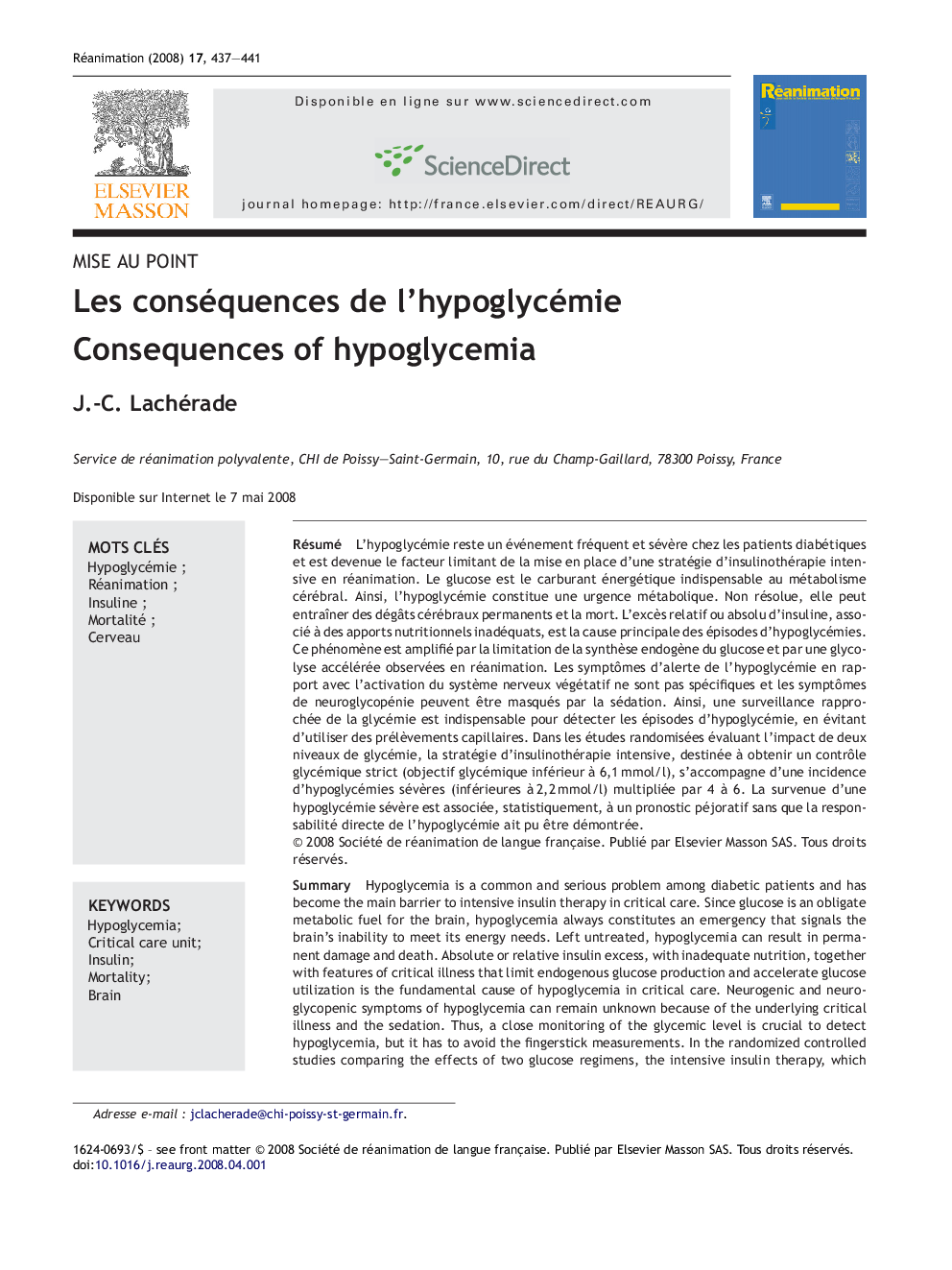| Article ID | Journal | Published Year | Pages | File Type |
|---|---|---|---|---|
| 2613825 | Réanimation | 2008 | 5 Pages |
Abstract
Hypoglycemia is a common and serious problem among diabetic patients and has become the main barrier to intensive insulin therapy in critical care. Since glucose is an obligate metabolic fuel for the brain, hypoglycemia always constitutes an emergency that signals the brain's inability to meet its energy needs. Left untreated, hypoglycemia can result in permanent damage and death. Absolute or relative insulin excess, with inadequate nutrition, together with features of critical illness that limit endogenous glucose production and accelerate glucose utilization is the fundamental cause of hypoglycemia in critical care. Neurogenic and neuroglycopenic symptoms of hypoglycemia can remain unknown because of the underlying critical illness and the sedation. Thus, a close monitoring of the glycemic level is crucial to detect hypoglycemia, but it has to avoid the fingerstick measurements. In the randomized controlled studies comparing the effects of two glucose regimens, the intensive insulin therapy, which aimed to reach strict glucose control (less than 6.1 mmol/l) increased the incidence of severe hypoglycemia (less than 2.2 mmol/l) by 4 to 6-fold. Severe hypoglycemia is statistically associated with adverse outcome in ICU patients, whereas its direct responsibility has not yet been demonstrated.
Keywords
Related Topics
Health Sciences
Medicine and Dentistry
Emergency Medicine
Authors
J.-C. Lachérade,
